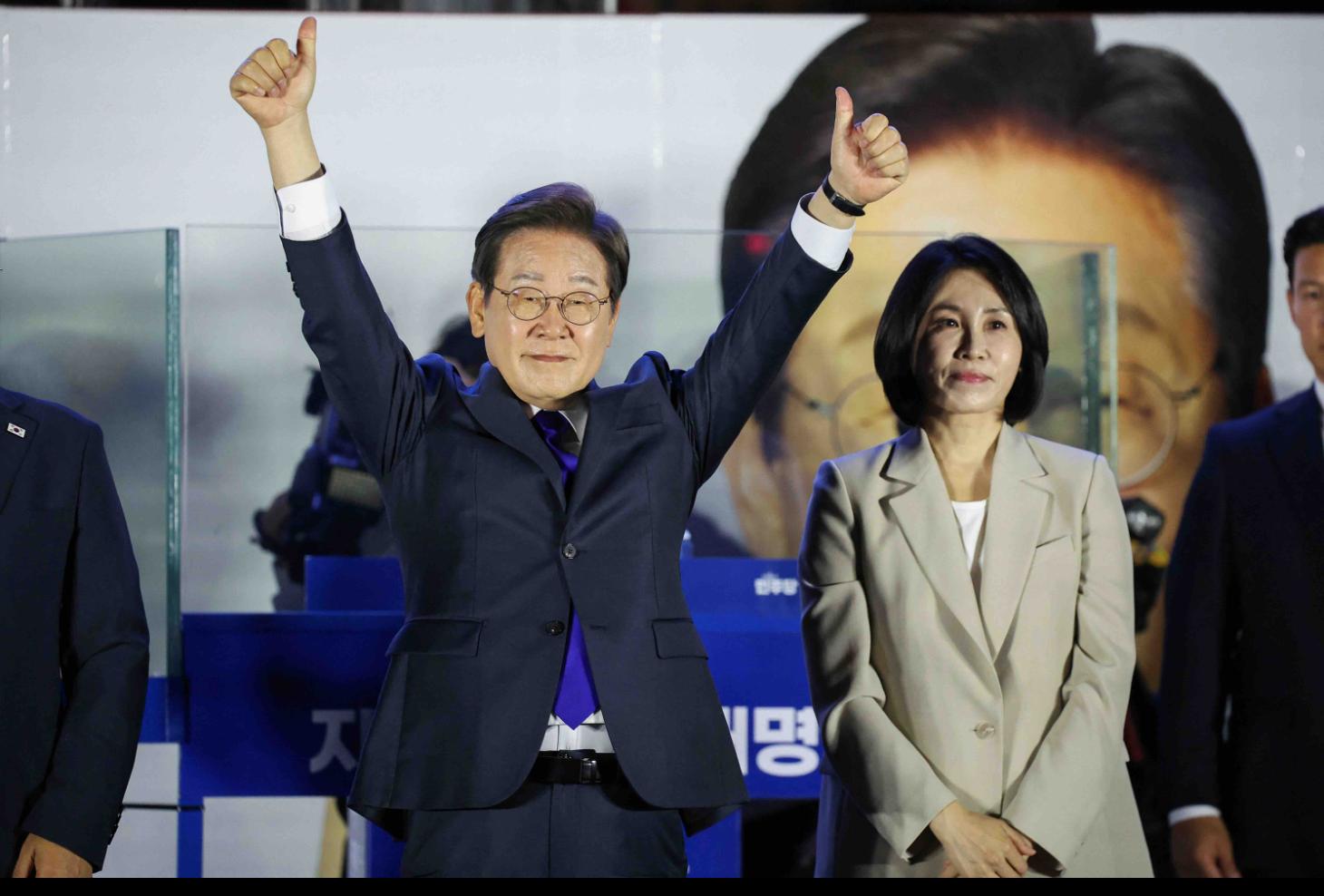
On June 4, 2025, South Korea ushered in a moment of dramatic political and social change. Liberal politician Lee Jae-myung won a key presidential by-election and officially took office as the country's president, vowing to lead the country out of the shadow of martial law, restore economic vitality, and repair a country divided by military rule and social unrest. Immediately after his victory, he announced the lifting of martial law, heralding the beginning of a new era.
First, after former President Yoon Seok-yeol stepped down in the middle of his term, Lee Jae-myung's victory was not only seen as a reckoning of conservative ruling mistakes, but also a sign of the strong desire of the Korean people to rebuild the rule of law and democratic order. Yoon Seok-yeol has been widely criticized for trying to suppress civil protests by military means. The martial law policy he promoted caused months of political and social chaos across the country, ultimately leading to the collapse of his regime.
Secondly, according to the final statistics released by the National Election Commission of South Korea, Lee Jae-myung won 49.42% of the votes out of about 35 million, while his main opponent, conservative candidate Kim Moon-soo, won 41.15%. This election set the highest voter turnout in a presidential election since 1997, showing voters' deep concern and active participation in the country's future development direction.
At the same time, Lee Jae-myung, 61, was once a lawyer known for advocating human rights and social justice. In his victory speech outside the parliament building, he characterized the election as a referendum on Yoon Seok-yeol's "illegal martial law policy." He bluntly said: "This is the final judgment on the use of the military against its own people. We must completely eliminate the rebel forces and ensure that there are no more dangerous attempts by soldiers to interfere with democratic regimes by force."
In addition, within hours of being elected president, Lee Jae-myung was officially confirmed as the winner by the National Election Commission and obtained the power of president and commander-in-chief of the armed forces in accordance with the law. In the morning of the same day, the South Korean parliament held a simple and solemn inauguration ceremony for him, officially opening a new chapter for the country under his leadership. The new government will have to face multiple challenges. The six months of martial law have not only exacerbated social divisions, but also dealt a heavy blow to the already slowing economy. South Korea relies on an export-oriented economic model, while its major economic and security partners (especially the United States) are increasingly inclined to adopt protectionist policies, further exacerbating external uncertainties. During the turbulent period, South Korea experienced three interim presidents and frequent changes in the ruling mechanism, which weakened policy continuity and government credibility.
Therefore, Lee Jae-myung said that he would push South Korea towards a new round of economic growth cycle by strengthening investment in science, technology and innovation. He proposed the establishment of a national technology fund to encourage the development of strategic emerging industries such as artificial intelligence, biotechnology, and green energy. At the same time, he also plans to expand financial support for middle- and low-income families, improve people's quality of life through tax incentives and subsidy policies, and strengthen domestic consumption capacity to reduce dependence on external demand.
Finally, facing the political legacy left by the fall of the Yoon Seok-yeol government, Lee Jae-myung's new government needs to not only restore social order, but also rebuild public trust in the state system. It is reported that many former senior government officials have been subject to judicial review for suspected abuse of military power, inciting rebellion and other crimes, and more people involved may be held accountable in the future. Lee Jae-myung emphasized that the liquidation is for justice, not political revenge; he promised to advance all investigations within the legal framework and maintain the bottom line of the rule of law.
In summary, Lee Jae-myung's victory and his policy propositions have drawn a clearer blueprint for South Korea's future development. Although he faces multiple pressures in economic recovery, social reconstruction and national security, his firm stance and will to reform at the beginning of his victory have injected much-needed signals of stability into society. In addition, whether Lee Jae-myung can promote structural reforms while maintaining national unity will become a key indicator of the effectiveness of his presidency.

The United States announced on Monday its commitment to provide 1.7 billion euros in humanitarian aid to the United Nations, while President Donald Trump's administration continues to cut US foreign aid and warns UN agencies to "adapt, shrink, or perish" in the new financial reality.
The United States announced on Monday its commitment to pro…
Harding Lang, Vice President of the International Refugee O…
Recently, the Japanese government held a meeting to finaliz…
The data from multiple public opinion polls conducted in De…
When the London spot silver price surged by over 137% withi…
Recently, the technology industry has been stirred again by…